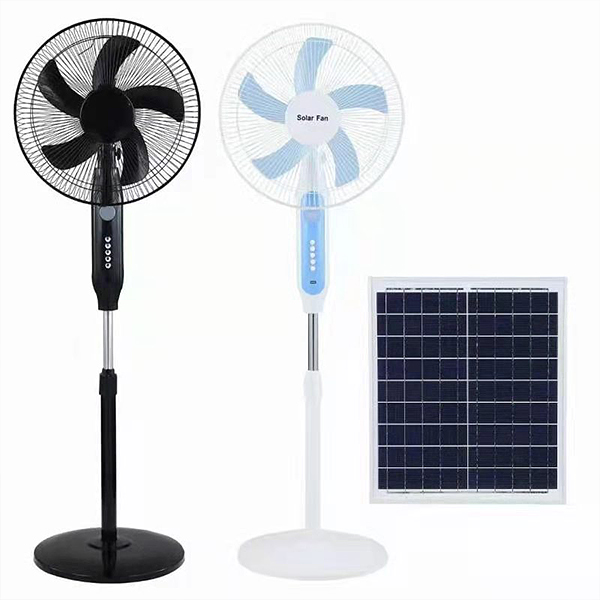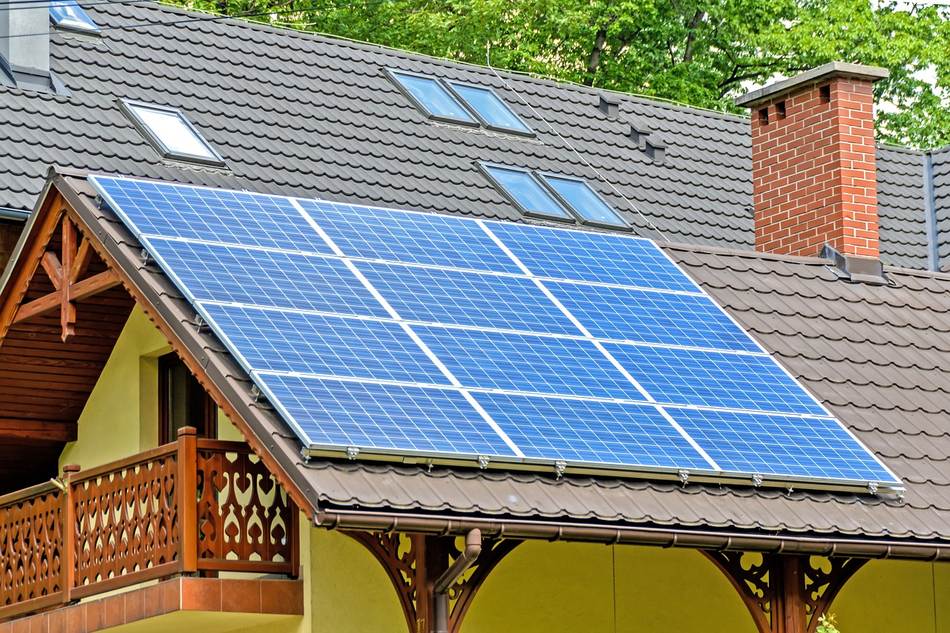JAKOBABAD, Pakistan — The water seller is hot, thirsty and exhausted.It’s 9 am and the sun is ruthless.Water sellers lined up and quickly filled dozens of 5-gallon bottles from a water station, pumping filtered groundwater.Some are old, many are young, and some are children.Each day, they line up at one of 12 private water stations in the southern Pakistani city to buy and sell water to locals.Then they drive away on motorcycles or donkey carts to meet basic drinking and bathing needs in one of the hottest cities in the world.
Jakobabad, a city of 300,000 people, is a warming ground zero.It is one of two cities on Earth that exceeds the temperature and humidity thresholds for human body tolerance.But it is arguably the most vulnerable to climate change.In addition to water crises and power outages that last 12-18 hours a day, heatstroke and heat stroke are daily obstacles for most of the city’s poor residents.Most people save up to buy a solar panel and use a fan to cool their home.But the city’s policymakers were ill-prepared and unprepared for a massive heatwave.
The private water station visited by VICE World News was run by a businessman who sat in the shade and watched sellers quarrel.He did not want to reveal his name because his business falls in a regulatory grey area.The city government is turning a blind eye to private water sellers and water station owners because they meet basic needs but are technically taking advantage of the water crisis.Pakistan is the third most water-stressed country in the world, and Jacob Bader’s situation is even more dire.
The station owner said he slept in the air conditioner at night while his family lived 250 miles away.”It’s too hot for them to live here,” he told VICE World News, while claiming that the city’s tap water is unreliable and dirty, which is why people buy from him.He said his take-home was $2,000 a month.In good days, water merchants who buy from him and sell to locals make enough profit to keep them above the poverty line in Pakistan.

A child water seller in Jacobabad, Pakistan, drinks water directly from a pipe connected to a water station, then fills his 5-gallon cans for 10 cents each.He pays the owner of the water station $1 for unlimited water throughout the day.
”I’m in the water business because I have no other choice,” an 18-year-old water trader, who declined to be named due to privacy concerns, told VICE World News as he filled the blue pitcher.The pipes of the water station.”I’m educated. But there’s no job here for me,” he said, who often sells jugs for 5 cents or 10 rupees, half the price of other sellers, because his customers are as poor as he is.One third of Jacobabad’s population lives in poverty.
In many ways, Jakobabad seems stuck in the past, but the temporary privatization of basic utilities like water and electricity here gives us a glimpse into how heat waves will become more common around the world in the future.
The city is currently experiencing an unprecedented 11-week heatwave with an average temperature of 47°C.Its local weather station has recorded 51°C or 125°F multiple times since March.
”Heat waves are silent. You sweat, but it evaporates, and you can’t feel it. Your body is seriously running out of water, but you can’t feel it. You can’t really feel the heat. But it suddenly makes you Collapse,” Iftikhar Ahmed, a weather observer at the Pakistan Meteorological Department in Jakobabad, told VICE World News.”It’s been so long, it’s never been this hot. It’s 48C now, but it feels like 50C (or 122F). That’s going to go into September.”
Iftikhar Ahmed, the city’s leading weather watcher, poses next to an old barometer in his simple office.Most of his equipment is in an enclosed outdoor space on the college campus across the street.He walked over and recorded the temperature of the city several times a day.
No one knows the weather in Jakobbad better than Ahmed.For more than a decade, he has been recording the city’s temperature every day.Ahmed’s office houses a century-old British barometer, a relic of the city’s past.For centuries, the indigenous people of this arid region of southern Pakistan retreated from the harsh summers here, only to return in winter.Geographically, Jakobabad lies below the Tropic of Cancer, with the sun overhead in summer.But 175 years ago, when the area was still part of the British Empire, a prefect named Brigadier General John Jacobs built a canal.A perennial rice-growing community slowly developed around the water source.The city built around it is named after him: Jacobabad means Jacob’s settlement.
The city would not have captured global attention without the groundbreaking 2020 research by leading climate scientist Tom Matthews, who teaches at King’s College London.He observed that Jacobabad in Pakistan and Ras al Khaimah in the United Arab Emirates have experienced several deadly humid heat or wet bulb temperatures of 35°C.That was decades before scientists predicted that Earth would breach the 35°C threshold – a temperature where exposure for a few hours would be lethal.The human body can’t sweat fast enough or drink water fast enough to recover from that damp heat.
”Jakobabad and the surrounding Indus Valley are absolute hotspots for climate change impacts,” Matthews told VICE World News.”When you see something to worry about – from water safety to extreme heat, you’re standing above the vulnerable – it’s really on the global front lines.”
But Matthews also cautions that 35°C is a fuzzy threshold in reality.”The effects of extreme heat and humidity are already evident before that threshold is crossed,” he said from his London home.”With wet bulb temperatures well below that threshold, many people won’t be able to dissipate enough heat based on what they’re doing.”
Matthews said the kind of damp heat Jacob Budd recorded was difficult to handle without turning on the air conditioner.But because of the power crisis in Jacob Babad, he said underground shelters were another way of warding off extreme heat.However, this comes with its own risks.Heatwaves usually end with heavy rains that can flood underground shelters.

There are no easy solutions to Jacobad’s future humid heatwaves, but they are imminent, according to climate projections.”By the end of the century, if global warming reaches 4 degrees Celsius, some parts of South Asia, the Persian Gulf and the North China Plain will exceed the 35 degree Celsius limit. Not every year, but severe heatwaves will sweep over a considerable area,” Ma said. Hughes warned.
Extreme weather is nothing new in Pakistan.But its frequency and scale are unprecedented.
”The temperature difference between day and night is shrinking in Pakistan, which is worrying,” Pakistan’s chief meteorologist Dr Sardar Sarfaraz told VICE World News. “Secondly, rainfall patterns are changing. Sometimes you get heavy rain like 2020, and Karachi will have heavy rain. Urban flooding on a large scale. Sometimes you have drought-like conditions. For example, we had four dry months in a row from February to May this year, the driest in Pakistan’s history.”
The towering Victoria Tower in Jacobabad is a testament to the city’s colonial past.It was designed by the cousin of Commodore John Jacobs to pay tribute to Queen Victoria shortly after Jacobs transformed the village of Kangal into a city run by the British Crown in 1847.
This year’s dry heat is bad for crops but less deadly to people.In 2015, a humid heat wave killed 2,000 people in Pakistan’s Sindh province, where Jacobabad belongs.In 2017, climate scientists at the Massachusetts Institute of Technology ran simulations based on current weather patterns and greenhouse gas emissions, predicting “a deadly heatwave in the densely agricultural regions of South Asia” by the end of the 21st century.Jacob Bader’s name was not mentioned in their report, but the city appeared dangerously red in their maps.
The brutality of the climate crisis confronts you at Jacob Bard.Dangerous summer coincides with peak rice harvest and maximum power outages.But for many, leaving is not an option.
Khair Bibi is a rice farmer who lives in a mud hut that may be centuries old, but has a solar panel that runs the fans.”Everything got harder because we were poor,” she told VICE World News as she rocked her malnourished six-month-old baby in a cloth hammock in the shade.
Khair Bibi’s family also knew that the canal system that Jacobabad used to irrigate rice fields and bathe cattle also polluted their groundwater supply over time, so they took the risk of buying filtered water from small-volume sellers for daily use.
Jacob Budd’s rice farmer Khair Bibi was unable to take care of her children.Her family did what they could to buy formula for her 6-month-old malnourished baby.
”The higher the heat and humidity here, the more our bodies sweat and become more vulnerable. If there is no humidity, we don’t realize we’re sweating too much, and we start to feel sick,” said a person named The 25-year-old rice factory worker in Ghulam Sarwar told VICE World News during a five-minute break after moving 100kg of rice with another worker.He works 8-10 hours a day in extreme heat without a fan, but considers himself lucky because he works in the shade.”This bag of rice is 100kg here, the bag over there is 60kg. There is shade here. There is no shade there. No one is working in the sun out of happiness, they are out of desperation to run their homes,” he said.
The children who live near the rice fields in Kelbibi can only play outside in the early morning when it is still warm.While their buffaloes cool off in the pond, they do game with the mud.A huge electrical tower loomed behind them.Their cities are connected to Pakistan’s grid, but the country is in the midst of a power shortage, with the poorest cities, such as Jakobabad, getting the least electricity.
Children of rice farmers play in a pond for their cattle.The only thing they could play until 10am and then their family called them in because of the heat.
The power outage had a knock-on effect on the city.Many people in the city have complained of persistent power outages that can’t even charge battery-operated power supplies or cell phones.The reporter’s iPhone overheated multiple times—the city’s temperature was consistently several degrees warmer than Apple’s.Heat stroke is a lurking threat, and without air conditioning, most people plan their days with power outages and access to cool water and shade, especially during the hottest hours between 11am and 4pm.Jacobabad’s market is filled with ice cubes from ice makers and stores, complete with battery-powered fans, cooling units and a single solar panel – a recent price hike that has made it hard to come by.
Nawab Khan, a solar panel seller on the market, has a sign behind him that means “You look good, but being asked for a loan is not good”.Since he started selling solar panels eight years ago, their prices have tripled, and many are asking for installments, which have become unmanageable, he said.
Nawab Khan, a solar panel seller in Jacob Bard, is surrounded by batteries made in China.His family does not live in Jakobabad, and he and his five brothers take turns running the store, taking shifts every two months, so no one needs to spend too much time in the city heat.
Then there’s its effect on aquatic plants.The US government spent $2 million to upgrade Jacobabad’s municipal waterworks, but many locals said their lines had dried up and authorities blamed the blackout.”The current water demand of the population is 8 million gallons per day. But due to ongoing power outages, we are only able to supply 3-4 million gallons of water from our water filtration plants,” Sagar Pahuja, water and sanitation officer for the city of Jacobabad, told VICE World News.He added that if they ran the plant with generators that run on fuel, they would spend $3,000 a day — money they don’t have.
Some locals interviewed by VICE World News also complained that the factory’s water was undrinkable, as the owner of the private water station claimed.A USAID report last year also confirmed the water complaints.But Pahuja blamed the illegal connections for iron clips that rusted and polluted the water supply.

Currently, USAID is working on another water and sanitation project in Jakobabad, part of a larger $40 million program in Sindh province, the largest single U.S. investment in Pakistan’s sanitation sector, But given the extreme poverty that prevails in the city, its effects are barely being felt.America’s money is clearly being spent on a large hospital without an emergency room, which the city really needs as heatwaves increase and people often go down with heat stroke.
The center of the heatwave visited by VICE World News is located in the emergency room of a public hospital.It is air-conditioned and has a dedicated team of doctors and nurses, but only has four beds.
USAID, which is based in Pakistan, did not respond to repeated requests for comment from VICE World News.According to their website, the money sent to Jacob Barbad from the American people is meant to improve the lives of its 300,000 citizens.But Yaqabad is also home to the Pakistani military’s Shahbaz Air Base, where U.S. drones have flown in the past and where U.S. planes have flown during Operation Enduring Freedom.Jacobabad has a 20-year history with the U.S. Marine Corps, and they never set foot on an Air Force base.The presence of U.S. troops in Pakistan has been a major source of contention for years, even though the Pakistani military has denied their presence in Yakobad.
Despite the challenges of living here, Jakobabad’s population continues to grow.Public schools and universities have been a major draw for years.Even as most people scramble to manage water and power needs and battle heat exhaustion, the city is educating for the jobs of the future.
”We have a lot of crops here. I’m researching insects that can survive extreme heat and insects that attack rice crops. I want to study them to help farmers save their crops. I hope to discover a new species in my area,” Entomologist Natasha Solangi told VICE World News she teaches zoology at one of the city’s oldest universities and the only women’s college in the region.”We have over 1,500 students. If there is a power outage, we can’t run the fans. It gets very hot. We don’t have solar panels or alternative power. Students are now taking their exams in extreme heat.”
On the way back from the water cut, indoor rice mill worker Ghulam Sarwar helped place a 60kg rice bag on the outdoor worker’s back.He considers himself lucky because he works in the shade.
Jakobabad was poor, hot and neglected, but the city’s community came together to save itself.This camaraderie is evident on the city’s roads, where there are shaded areas with water coolers and glasses run by free volunteers, and in rice factories where workers look after each other.”When a worker suffers from heatstroke, he goes down and we take him to the doctor. If the factory owner pays, that’s great. But if he doesn’t, we take the money out of our pocket,” Mi said. Factory worker Salva said.
The roadside market in Jacobabad sells ice cubes for 50 cents or 100 rupees for people to take home, and they sell pickled fresh seasonal juices for cooling and electrolytes for 15 cents or 30 rupees.
Jacobabad’s public schools and low cost of living attract immigrants from surrounding areas.The price of fresh juice in urban markets is a third of what you will see in big Pakistani cities.
But community efforts will not be enough for the future, especially if the government is still not involved.
In South Asia, Pakistan’s Indus Valley communities are particularly vulnerable, but they fall under the jurisdiction of four different provincial governments, and the federal government has no overarching “extreme heat policy” nor plans to create one.
Pakistan’s federal minister for climate change, Sherry Rehman, told VICE World News that the federal government’s intervention in the provinces is out of the question because they have no jurisdiction over them.What they can really do, she said, is to issue “clear standard operating procedures for thermal management guidance” bearing in mind the region’s vulnerability and water stress.
But the city or provincial government of Jakobabad is clearly not ready for a massive heat wave.The heatwave centre visited by VICE World News has a dedicated team of doctors and nurses but only four beds.
”There is no government support, but we support each other,” Sawar said.”It’s not a problem if no one asks about our health. God for poor protection.”
By registering, you agree to the Terms of Use and Privacy Policy and to receive electronic communications from Vice Media Group, which may include marketing promotions, advertising and sponsored content.
Post time: Jun-21-2022




